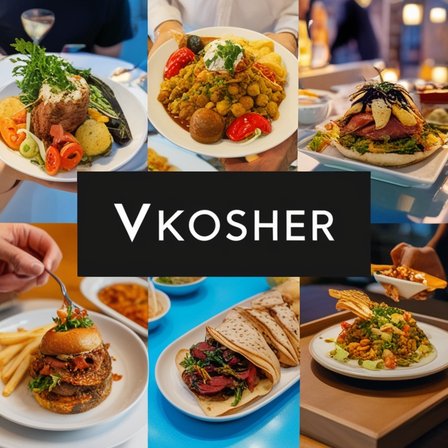The Rich Tradition of Kosher Delis
Kosher delis hold a unique and cherished place in the culinary landscape, especially within Jewish communities around the world. These establishments are not merely places to grab a sandwich or a quick bite; they are cultural institutions that preserve and celebrate Jewish culinary traditions, religious practices, and communal values. From the classic pastrami on rye to the comforting bowl of matzo ball soup, kosher delis offer a taste of history, tradition, and a sense of belonging.
The History of Kosher Delis
The history of kosher delis dates back to the late 19th and early 20th centuries, primarily in Eastern Europe. Jewish immigrants brought their food traditions with them as they settled in new lands, particularly in the United States. The kosher deli became a staple in Jewish neighborhoods, serving as a hub for the community. These delis offered not only food that adhered to Jewish dietary laws but also a place where people could connect, share stories, and maintain their cultural identity in a foreign land.
In cities like New York, Chicago, and Los Angeles, kosher delis flourished. They were often located in bustling neighborhoods where Jewish immigrants lived and worked. Over time, these delis became popular not only among Jewish customers but also among non-Jews who were drawn to the distinctive flavors and hearty dishes that kosher delis offered. The rise of the kosher deli in America is a testament to the blending of cultures and the way food can bring people together.
What Makes a Deli Kosher?
To understand what makes a deli kosher, one must first understand the concept of kashrut, the set of Jewish dietary laws. Kosher delis strictly adhere to these laws, which dictate not only which foods can be eaten but also how they are prepared and served. For example, kosher law prohibits the mixing of meat and dairy, so a kosher deli will have separate preparation areas, utensils, and equipment for meat and dairy products.
Meat served in a kosher deli must come from animals that are slaughtered according to specific religious guidelines. The process, known as shechita, involves a quick and humane method of slaughtering that is intended to minimize the animal’s suffering. After slaughter, the meat must be properly salted to remove any remaining blood, as consuming blood is prohibited in Jewish law.
Additionally, kosher delis do not serve certain types of meat, such as pork or shellfish, as these are considered non-kosher. The deli must also be closed on the Sabbath (Shabbat) and Jewish holidays, adhering to the rules that prohibit work during these sacred times. These regulations ensure that the food served is not only delicious but also spiritually appropriate for those observing Jewish dietary laws.
Signature Dishes of a Kosher Deli
Kosher delis are known for their iconic dishes, many of which have become staples in American cuisine. One of the most famous is the pastrami sandwich, typically served on rye bread with mustard. The pastrami is made from beef that has been cured, seasoned, and smoked, resulting in a tender, flavorful meat that is rich and satisfying.
Another classic dish is the corned beef sandwich, also served on rye. Corned beef is brisket that has been cured in a brine of water, salt, sugar, and spices, then slowly cooked until tender. The result is a slightly tangy, deeply savory meat that pairs perfectly with the dense, slightly sour flavor of rye bread.
Matzo ball soup is another beloved dish at kosher delis. This comforting soup features a clear chicken broth with fluffy matzo balls, which are made from matzo meal, eggs, water, and fat (often chicken fat, known as schmaltz). The simplicity of the soup belies its comforting and hearty nature, making it a staple during Jewish holidays like Passover and a year-round favorite.
Kosher delis are also known for their pickles, which are typically made through a natural fermentation process that gives them a distinctive tangy flavor. These pickles often accompany sandwiches or are served as a snack on their own.
The Role of the Kosher Deli in Jewish Life
Kosher delis have long been more than just places to eat; they are integral to Jewish cultural and religious life. For many Jewish families, a visit to the deli is a weekly tradition, particularly on Sundays. It’s a time to gather with family and friends, share a meal, and connect with the broader community.
These delis also play a significant role during Jewish holidays. During Passover, for example, kosher delis offer traditional dishes like matzo, charoset (a sweet paste made of fruits and nuts), and gefilte fish (a poached mixture of ground fish). These foods are essential for the Passover Seder, a ritual feast that marks the beginning of the holiday.
Kosher delis are also central during other holidays, such as Rosh Hashanah (the Jewish New Year) and Hanukkah (the Festival of Lights). During these times, delis offer special dishes and sweets, such as honey cake for Rosh Hashanah or latkes (potato pancakes) for Hanukkah. These foods are not only delicious but also steeped in symbolism and tradition.
Kosher Delis in Modern Times
In recent years, kosher delis have seen a resurgence in popularity, even as many traditional delis have closed due to changing demographics and economic pressures. This resurgence is partly due to a renewed interest in traditional, artisanal foods and the desire to preserve culinary heritage. Younger generations of Jewish Americans, as well as food enthusiasts of all backgrounds, have begun to seek out kosher delis for their authentic flavors and rich history.
Moreover, many kosher delis have adapted to modern tastes and dietary preferences. While traditional dishes remain popular, some delis have introduced new menu items that cater to contemporary palates, such as vegetarian or gluten-free options. This blend of tradition and innovation has helped kosher delis remain relevant in today’s diverse food landscape.
Additionally, the concept of kosher food has gained broader appeal, with more people seeking out kosher-certified products for reasons beyond religious observance. Some choose kosher products for perceived quality or because kosher certification involves a level of scrutiny that can appeal to those with specific dietary concerns, such as allergies.
The Future of Kosher Delis
As kosher delis continue to evolve, they remain a vital part of Jewish cultural life. The challenge for many delis is to stay true to their roots while also appealing to a new generation of customers. This means preserving traditional recipes and practices while also being open to innovation and change.
For example, some kosher delis have embraced the farm-to-table movement, sourcing their ingredients from local farms and focusing on sustainability. Others have expanded their offerings to include modern twists on classic dishes, such as pastrami tacos or matzo ball ramen. These creative approaches help attract a broader audience while maintaining the essence of what makes a kosher deli special.
Another aspect of the future of kosher delis is the role of technology. With the rise of online ordering and food delivery services, many kosher delis have adapted to offer their products to a wider audience. This has made it possible for people who do not live near a kosher deli to enjoy their favorite dishes, no matter where they are.
Conclusion
Kosher delis are much more than just places to eat; they are cultural institutions that preserve and celebrate Jewish traditions. From their historical roots in immigrant neighborhoods to their modern-day resurgence, kosher delis have played a significant role in shaping the culinary landscape. As they continue to adapt and evolve, they will undoubtedly remain a beloved part of Jewish life and a cherished destination for food lovers around the world.




